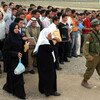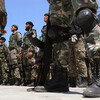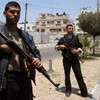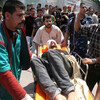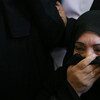
Cross Country: Leaving Iraq, Engaging Iran
14 May 2007
In the Christian Science Monitor, Ali Abunimah cites the successes of South Africa’s and Ireland’s unity governments as evidence that a single Israeli-Palestinian state could work: “In both places,” he observes, “it was only when the dominant group dropped its insistence on supremacy that a political settlement could be reached. What was once unimaginable happened.” Read more about Cross Country: Leaving Iraq, Engaging Iran
